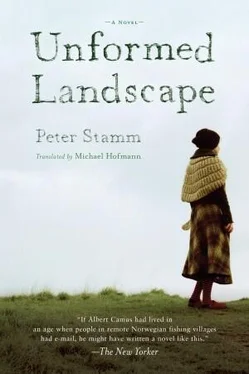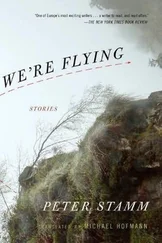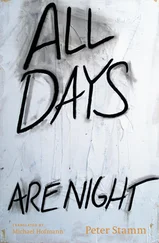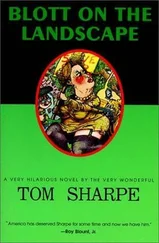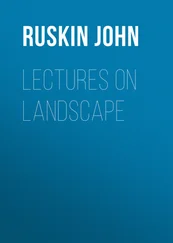“There was one man who used to send me roses every day. He followed us on our entire tour, and saw every performance. He was besotted with me. He was on the board at Sony, a very rich man. He filmed me with a video camera, even though that wasn’t allowed. A tiny little thing. A prototype. Not for general sale. He was in charge of developing new products.”
She stopped. She didn’t enjoy inventing stories. She felt wretched doing it, and she couldn’t think of what else she was going to tell Jurgen. She couldn’t talk to him if she was lying to him. She felt even more alone than she had felt before Jurgen had come into the compartment, and the more she went on, the more baffled she was by Thomas.
“So what is it exactly that your husband does?” asked Jurgen.
“Look, I’ve got to go to sleep now,” she said. “I’ve got a hard day ahead of me.”
Jurgen took off his pants and shirt. He was wearing light blue underclothes, and he didn’t seem at all awkward. Kathrine asked him whether he had sisters. Yes, he said, three sisters, why? He turned round, and made his bed. He scratched his bottom. Kathrine felt reminded of a theology student who had done his internship in the village, she couldn’t remember his name now. She smiled. Jurgen lay down. He asked her if she’d like to hear a joke. She asked him how old he was. Nineteen, he said, and she said she was tired, and good night.
Kathrine thought about the theology student. He had spent one winter in the village, and had helped the vicar with the community work. He had organized the church fair. Rune was his name, and he had come from Oslo. For a whole month he’d gone around the village, trying to talk people into making things to sell at the church fair. Kathrine had told him there was no point in such a small village.
“I make something for you to buy, and you make something for me to buy. Where’s the sense in that? I might as well make something for myself.”
“If you make something, I’ll buy it,” Rune had replied. But Kathrine hadn’t made anything. At most, she made coffee for him, he was slightly in love with her, she had noticed. Perhaps he had said something to that effect too. Then she had met Thomas at the bazaar. And Rune had been sensible, he had known she wouldn’t leave the village, and that it was no place for him. And he had left.
Rune had asked Kathrine to go to church, but she had never gone, not then or later. She didn’t believe in God. Almost no one in the village believed in God, perhaps not even the vicar, who was a nice man, and did his job same as everyone else.
Only Ian believed in God. Ian was the Scottish priest whom Kathrine sometimes met on the street, who worked as a missionary with the Russian seamen. The first time she had seen him had been on a trawler, and she took him for a Russian. She had looked through his rucksack for contraband, but it was only full of Bibles. Ian belonged to an international organization that had been founded to convert people in the Eastern bloc countries, and was now fighting the spread of radical sects. He had set up a little prayer room on the lower floor of the fishermen’s refuge. He asked the seamen along, made them cups of tea, talked and sang and prayed with them, if they wanted. When Kathrine ran into him, he was always in a woolen hat, and with an old rucksack full of Russian Bibles. Then he said how unhappy he was in the village, and how lonely, and she walked with him a bit, and tried to comfort him. She asked him why he didn’t get himself posted somewhere else, and said he surely couldn’t buy happiness for others at the expense of his own unhappiness. But Ian said Jesus had brought him here, and Jesus would take him away again. She said the Hurtig Line brought you here, and will take you away again.
“The people here believe in God, they just don’t believe in Jesus,” Ian said once, “they believe in the Creation, but they don’t believe in love.”
“Well, Creation exists,” said Kathrine, “whereas love…”
Then Ian said he wished she and her husband could be brought together again. Kathrine said Helge wasn’t her husband anymore, and Ian said he would still pray for both of them. And now Thomas wasn’t her husband anymore either, and Kathrine wondered whether Ian would pray for them too, and she hoped it wouldn’t help. She thought of her son as if he were Thomas’s rather than her own.
For the church bazaar, Ian had glued sand and shells onto little picture frames, dozens of little ornamented picture frames, but no one had wanted to buy them. Finally, Rune had bought a couple, and given one to Kathrine. He put a picture of himself in the frame. Kathrine threw away the frame after Thomas had made fun of it. She kept the picture.
When Kathrine woke up, Jurgen was gone. There was a knocking on the door, and then more knocking. She opened it without getting up. It was the sleeping-car conductor. He handed her her ticket back, and her passport, and said they would arrive in Paris in a quarter of an hour, and he wished her an enjoyable stay. Kathrine looked at her watch. The houses outside must already belong to Paris. The train traveled through endless suburbs, past tall, narrow houses, through suburban stations. There were lots of people standing on the platforms, watching as the train rushed through. A few were reading newspapers, a few turned their heads to watch. There must be a Kathrine among them, or a Catherine, with a child and a husband and a lover. Someone who stood there every morning, went to work, made coffee, ate lunch with her colleagues, and went home again.
Kathrine lay on her bunk and looked out the window. Outside, a very crowded commuter train slowly passed them, and the commuters stared across at her, quite unashamedly they stared, in the certainty that nothing would happen to them. Kathrine felt like pulling the blanket up over her head, but instead she stood up and went over to the window, dressed only in her panties and T-shirt. She tried to make the men look at her, but they all lowered their eyes. Only one young man kept looking, their eyes met briefly.
The sleeper slowed down. The other train had now overtaken it, and beyond the tracks, Kathrine could see gigantic warehouses and factories, ugly yellow-white or gray buildings, with the names of companies on them that she had never seen before. The city looked different from the way Kathrine had imagined it, different from Thomas’s descriptions of it. But then, this isn’t Thomas’s Paris, she thought, this is my Paris.
She got dressed, and went to the washroom. She was astonished to see herself in the mirror. When she looked in her eyes, she saw the fear she had almost forgotten she had.
In the metro an old man and a young woman were performing together. The man played an accordion while the woman sang. Kathrine knew they were from Russia, she didn’t need to look at the little cardboard sign they had in front of them on the ground, next to a little saucer of money.
She thought about Alexander, who was dead, who was no longer there. If they at least manage to find him, and give him a burial. Even the dead deserved a place. But he was gone, just gone, vanished in the same way as she had vanished. Nothing was where it was supposed to be anymore.
She got on the first metro that arrived. As it drove off, it made sounds like a ship and swayed a little from side to side. Kathrine had sat down on a folding seat. Opposite her was a man in white socks reading a newspaper, who looked at Kathrine over the top of his reading glasses from time to time. She looked out the window. The name of the first station was Poissonniere. Poisson , as she remembered, was the word for fish. That’s what it said on the boxes at Nils H. Nilsen’s. Filet de Poisson .
She traveled a couple of stops, and then got off. She walked along tunnels and underground lobbies and found herself — without having seen daylight — in one of the vast department stores Thomas had mentioned to her. But everything was different from the way he had described it. She wondered whether he had lied to her, or she had perhaps deceived herself, not understanding what he was telling her. There must be a colored glass dome in a café somewhere. She took the elevator to the top floor, where the café was. But there wasn’t any colored glass dome. The place was very big, with cheap decor, white-painted wooden lattices, and plastic blossoming boughs, which gave it the appearance of a garden café. Printemps , Kathrine knew, meant spring. She had never been in a garden café before, but she knew right away what it was, and perhaps for that reason mistrusted it. It looks, she thought, the way a Norwegian who has never seen a garden café might imagine one to look. She smiled. She got herself a coffee, and sat down at one of the tables.
Читать дальше
